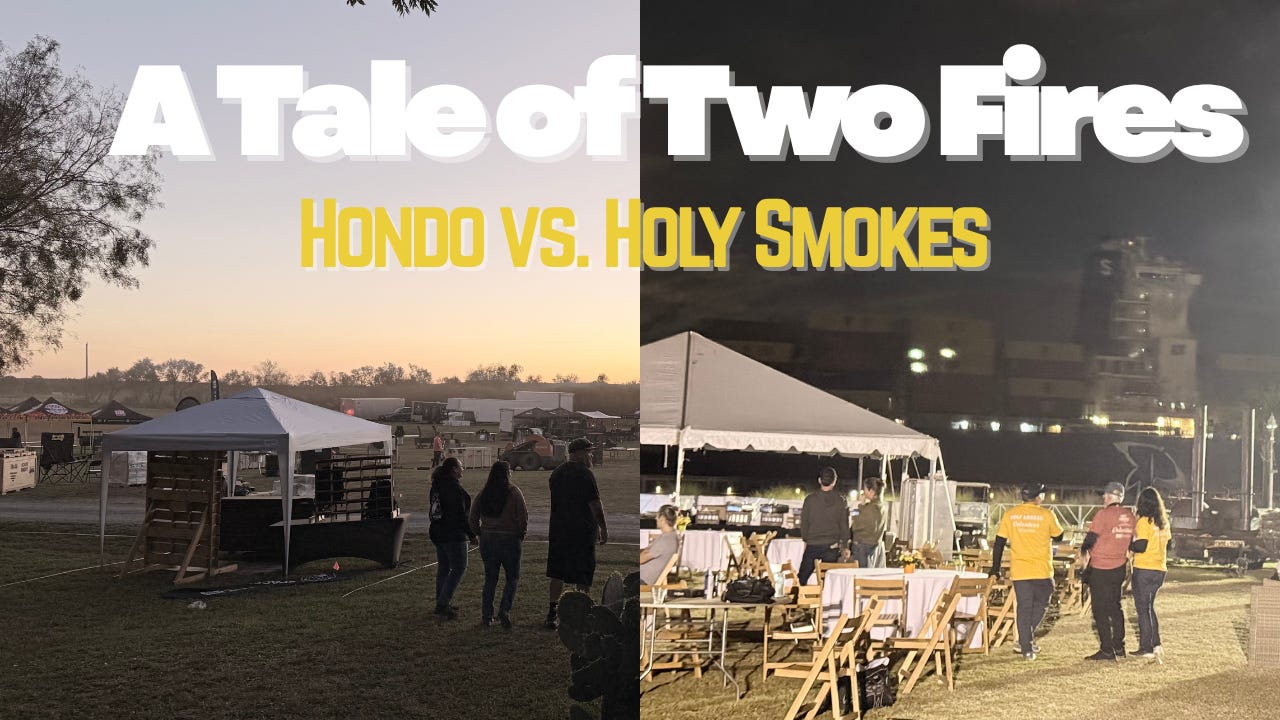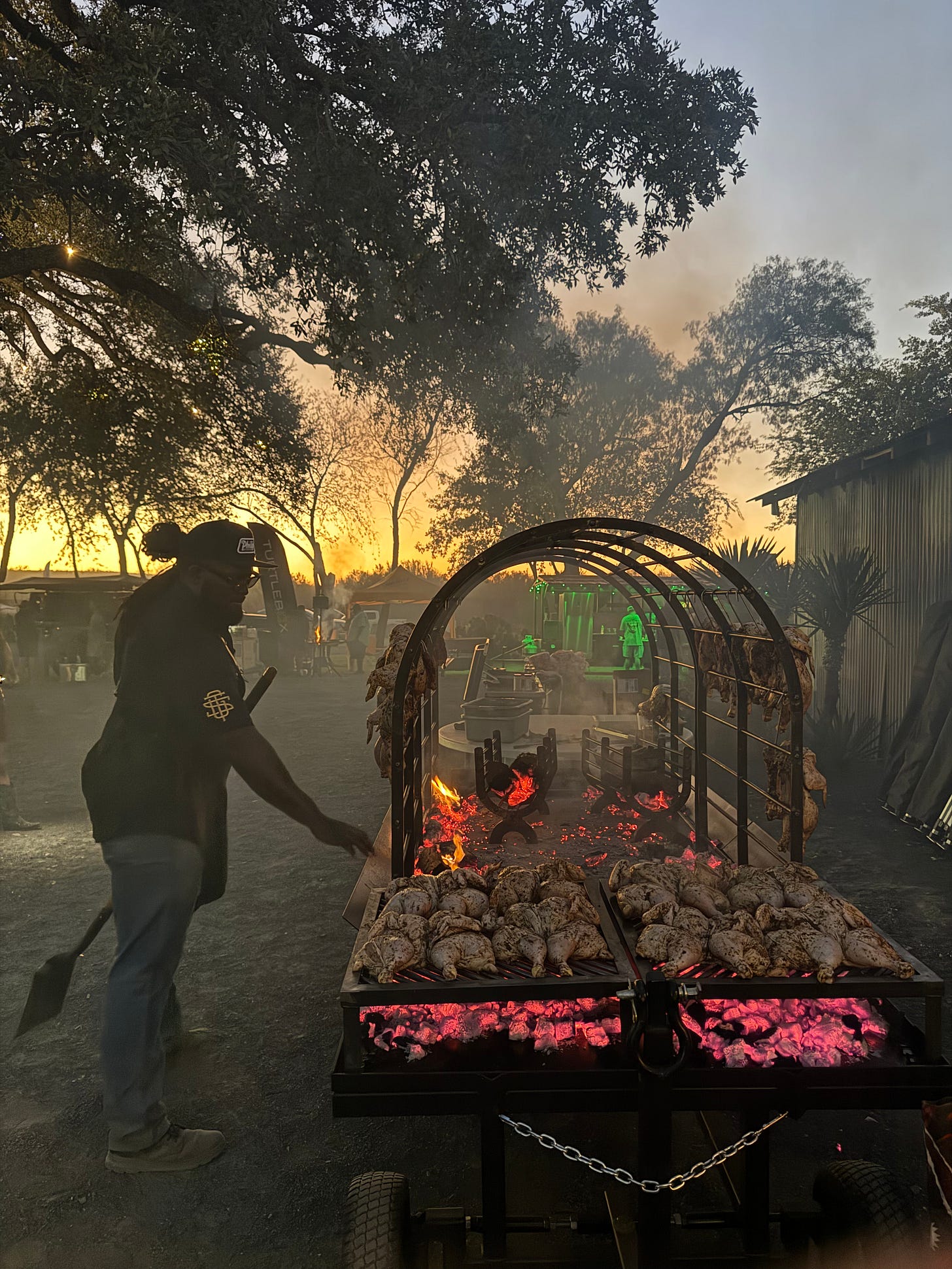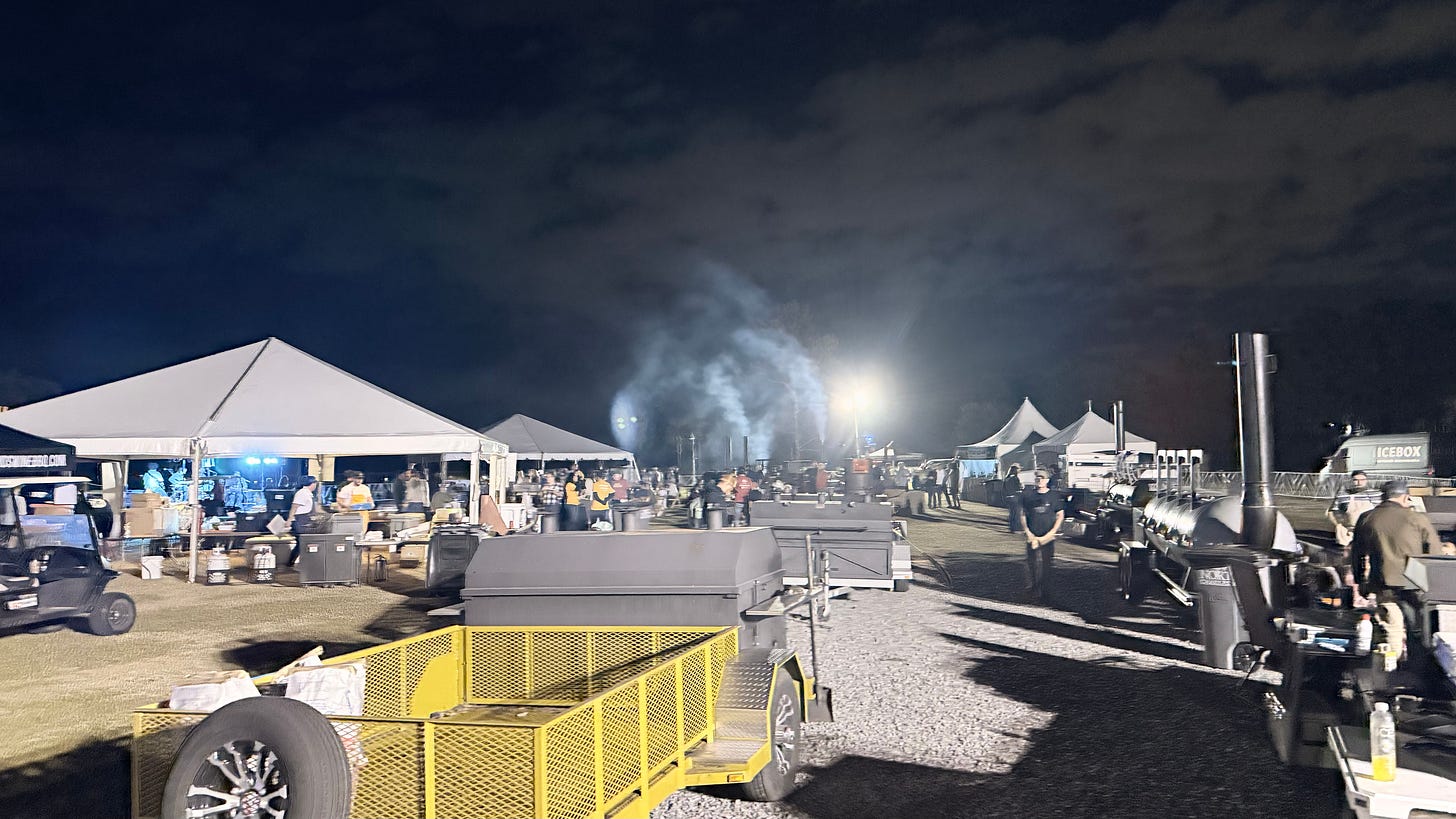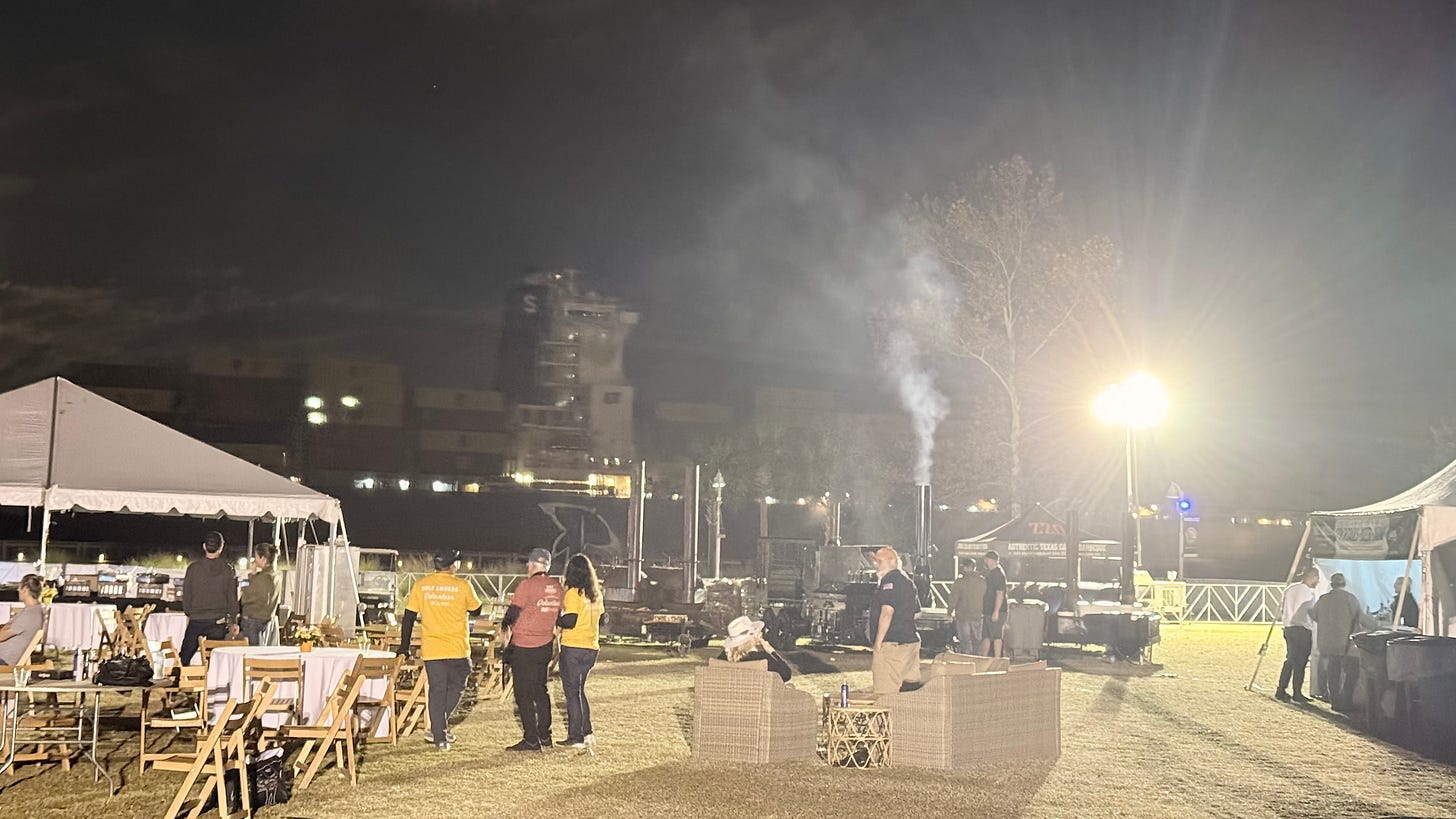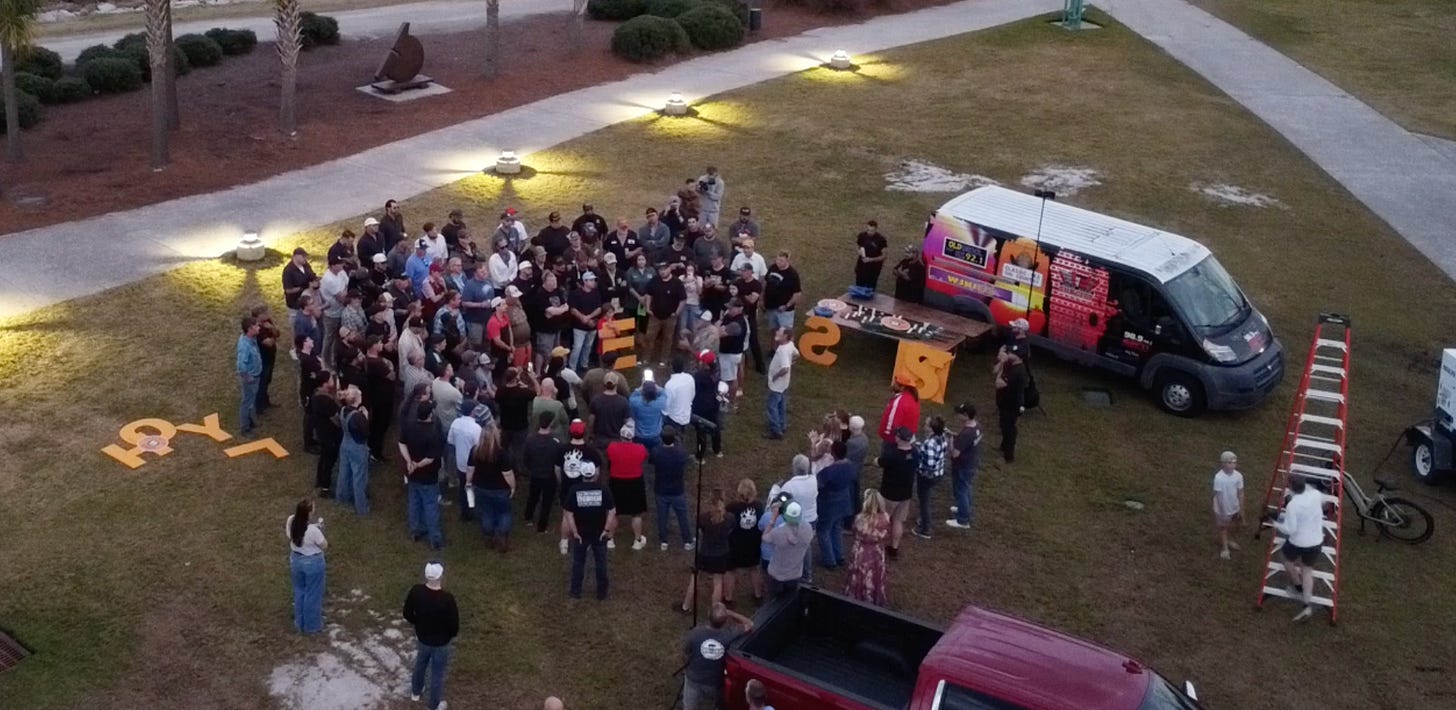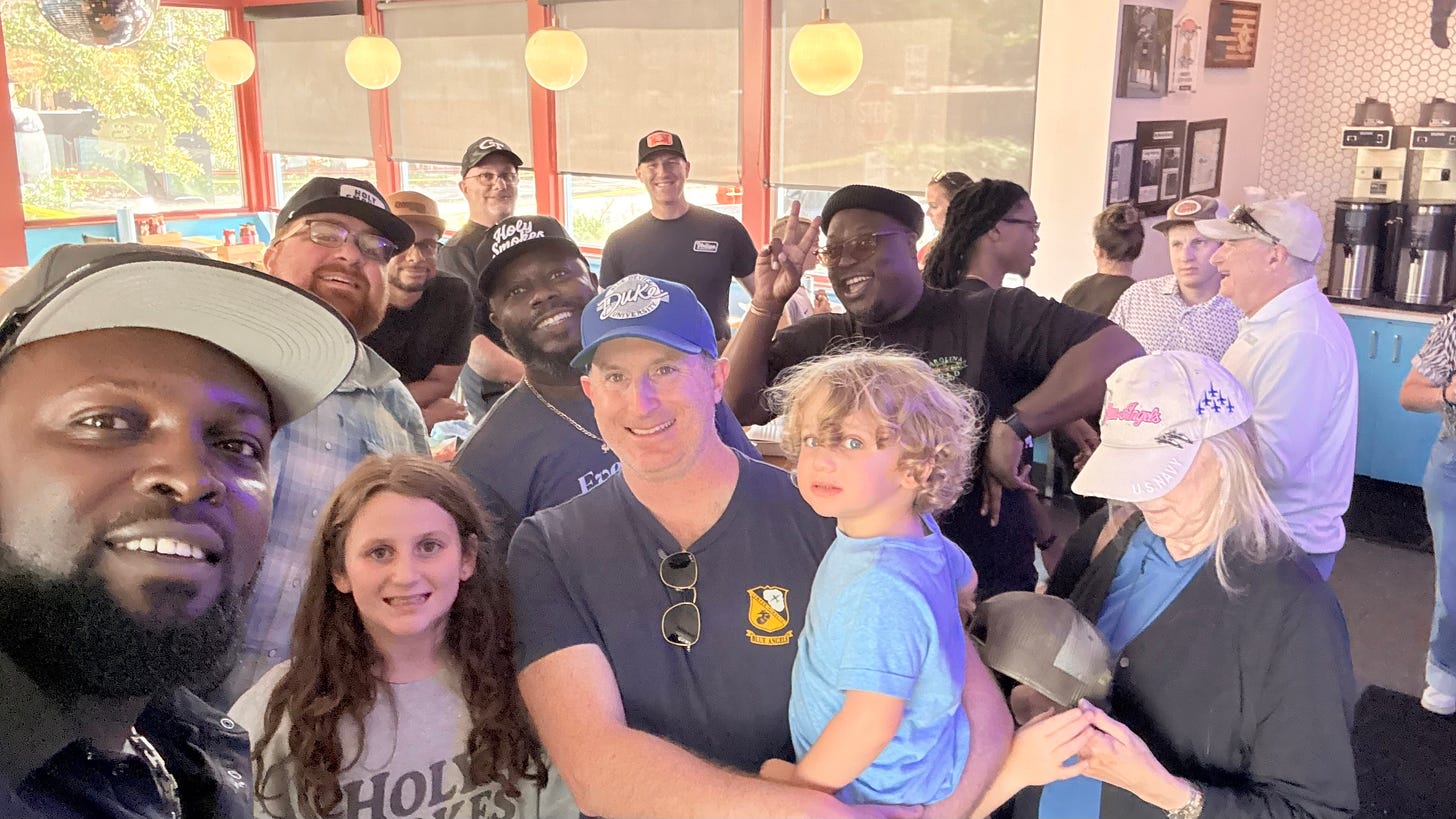A Tale of Two Fires: Hondo vs. Holy Smokes
The first light over Hondo, Texas, arrives softly, spreading across the flatlands like a whisper. The sun lifts above the pastures of Qual Crossing Ranch, turning the grazing cattle into silhouettes against a wash of gold and rose. Out here, there’s no need for clocks, only the rhythm of flame and time. The air smells faintly of mesquite, and the only sounds are the shuffle of boots on dry soil and the occasional call of a hawk circling overhead. It’s a place where stillness hums with potential, and on this weekend, fire was the unifying language.
I came to Hondo for the Open Fire Meat Up, a gathering that celebrates the primal art of cooking over flame. The ranch is vast, so large it swallows you whole if you’re not careful, with trees that lean like sentinels over the open pastures and farm sheds built for work, not show. Somewhere on the back half, hunters clean their bucks at a weathered station, a quiet reminder that this land still belongs to those who know how to use it. On the front, though, the fire pits roared. This was where I set up with a new rig, Big Javi’s creation, the Fire Coop, a beast of welded steel and imagination. I had the honor of being the first to break it in, and as the coals took, I felt that same excitement I imagine a painter feels before touching brush to canvas.
Cooking here is not performance, it’s communion. You shovel, you stoke, you listen. The fire tells you when to turn, when to wait, when to feed it more. I cooked open-fire jerk chicken that day, each crackle and hiss echoing against the metal rig. The smoke wrapped around us like an invisible crowd. People wandered by, drawn by the scent, and I served them straight from the chopping block. There’s no barrier between pitmaster and plate here, no stage, no catering tent. Just the immediacy of the exchange. The crowd’s reactions, nods, smiles, a satisfied silence, fed me as much as the food itself.
A few hours later, I was on the opposite side of the South, standing by the water in Charleston for the fifth annual Holy Smokes Festival. The scene could not have been more different. Where Hondo was wide and raw, Charleston was refined and rhythmic. Riverfront Park shimmered under the late autumn moonlight, its skyline interrupted only by the slow passage of cargo barges that looked close enough to touch.
By nightfall, the moon painted the water silver, and those same barges became moving shadows against the backdrop of a city that has always understood the power of community and craft.
This was my fifth year cooking at Holy Smokes, and it’s always felt less like a festival and more like a family reunion. The nation’s best pitmasters gather here, not to compete, but to give. Every plate serves a purpose, raising money for Hogs for the Cause and Ronald McDonald House. There are no egos, no trophies, no headliners. Just shared fire and shared purpose. The setup this time was simple: Corolina whole-hog. The crowd drifted between villages, Old School, New School, Texas, each pit a different dialect in the language of smoke. At my station, I could hear laughter mingling with the soft slap of waves against the riverwall.
Charleston has a way of reminding you that the fire is just the tool; the people are the story. Late that night, we gathered around a burn barrel, pitmasters, friends, and family, sharing stories under the same moon that had watched over Hondo just days earlier. Rodney Scott, a constant source of wisdom and humor, leaned in to talk shop and life in equal measure. These are the moments that feed me deeper than any meal ever could.
But this year, there was a quiet undercurrent, a heavier kind of reflection. One of the festival’s founders, Anthony, had recently lost his son, Asher. His speech that night wasn’t about barbecue; it was about time. About how fleeting it is, how precious. The words hung in the air like smoke, curling into every conversation that followed. Time, he said, is the only thing we can’t make more of. It’s a truth that hits differently when you spend your days tending fires, measuring minutes by embers, watching things burn down to ash only to start again.
In Hondo, I learned that my reach extends farther than I realize, that the small ripples we make can travel further than we ever expect. In Charleston, I was reminded that the only real competition worth having is with time itself. Between the two fires, I found balance: one that pushes, one that nourishes.
If Hondo was the hard-driving spirit of open flame, bold, raw, and relentless, then Holy Smokes was its counterpoint: soft-hearted, communal, reflective. Both are bound by the same element, yet each burns with its own soul. And somewhere between those two fires, I rediscovered why I fell in love with this life in the first place. The fire may be what draws us in, but it’s the people, their stories, their hands, their hearts, that keep us coming back to the pit, again and again.



